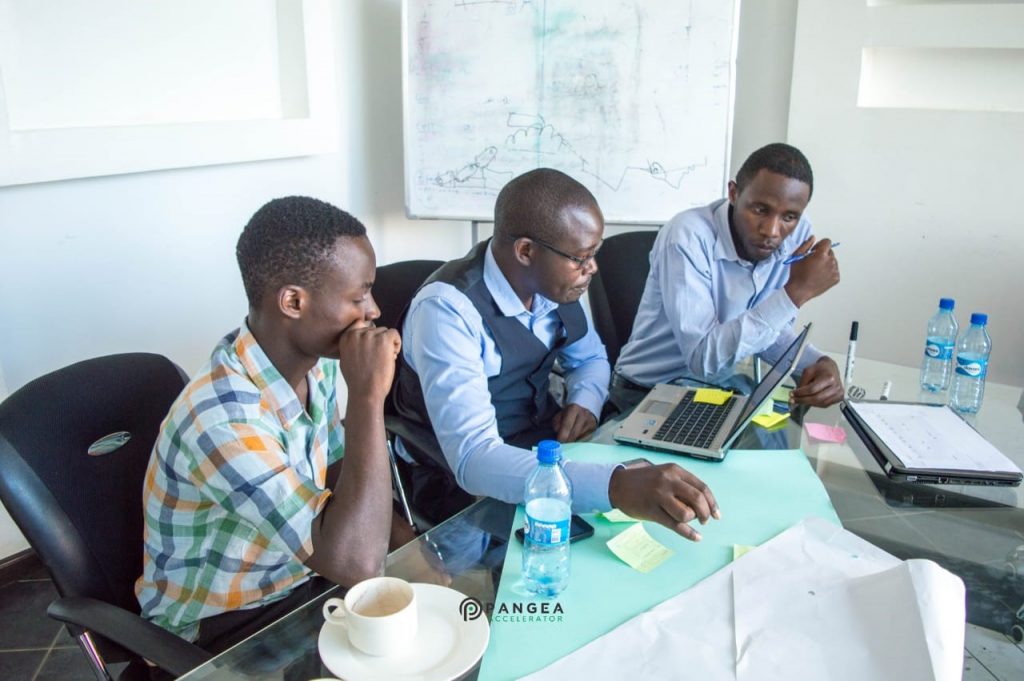advertisement
Charging phones in the era of IoT
Necessity was said to be the mother of innovation, a case that explains only too well the birth of a…

Necessity was said to be the mother of innovation, a case that explains only too well the birth of a phone charging system built from arduino kits and installed in the many social joints of Nairobi city.
Once at a restaurant, Walter Ondari, a Computer Engineer and Pangea accelerator trained Entrepreneur who championed for the charging project, ran out of charge and only had money in his mobile wallet. He knew only well that he had to charge his phone battery to be able to foot his bills, what proved a tall order then.
Ondari would eventually not charge his phone even amidst the plentiful electric sockets in the restaurant and would leave a beaten man. He shares his frustrations and hustle through footing his bill which, would later see to the birth of IoT enabled charging gadgets, fixed inside social amenities.
advertisement
He says, “I left the hotel disappointed but equally anxious to research on the opportunities present to solve the charging problem that I would learn was not unique to this particular restaurant I was in.”
Ondari’s frustration is akin to a lot of Kenyan urban dwellers’ untold stories.
Picture this, a Nairobian leaves home for the CBD and sits for about two hours on jammed roads before getting to their destination, a period in which most people console to the use of their smartphones to access the net checking on mails, news and social media updates.
advertisement
The phone batteries get to 50% used before one gets to queues at Huduma Centres, the KRA office, Immigration offices and the likes. Before you know it, your phone is off and you have yet met a family friend from the other part of town who may be in town purposely for the meet up. Times like that would call for an ASPAWA gadgets for bailouts.
Technology
As Peter Owino, the Chief Operations Officer (COO) ASPAWA puts it; “There is a call for the usage of technology to innovate solutions, every new technology presents an opportunity to develop new technologies to complement it.”
advertisement
Dubbed ASPAWA, the charging gadgets are built on Arduino robotic kits that enable for fast and efficient phone charging utilizing the power of IoT (Internet of Things) for instant data collection from the Aspawa unit to the support office to tell the status of each charging point, any fault, client payments and any network related issues.
They are fixed with extending cables or locks from which picks a user, then pays with mobile money using the cable number as the account number. It is a PAYG service that determines the charging duration dependent on the money paid.
The chargers are built on IoT’s powerful sensors and data communications channels as well as powerful dashboards that that Ondari calls a great gift to innovation lovers and solution providers across the globe.
“With Aspawa gadgets in buses to town, queuing points, hotels, public points, all stages, railway cabins and public function areas, just use a mobile payment and with speedy smart chargers, phones get fully charged with negligible fee of Ksh 20,” says Peter
https://events.cio.co.ke/event/east-africa-iot-and-ai-summit/
A necessary gadget
The need for such systems shocks. The smart gadgets owned largely in the world today have weak batteries or just high power consumption tendencies that then leave many people not connected when they are not able to recharge the batteries.
“While prototyping in Nairobi area and within the first month, over 108 unique visitors had used Aspawa with 65 return clients,” avers Ondari affirming the necessity of such well thought gadgets.
He notes that seven clients have placed inquiries to have the same service in their premises even from outside of Nairobi pushing for the need to Aspawa is currently expanding to serve the Nairobi market before expanding to other
areas of the country, East Africa then the rest of the world.
https://events.cio.co.ke/event/east-africa-iot-and-ai-summit/
Technology is an enabler to solving the day to day challenges we face
“Am extremely passionate about innovation, challenges always get me thinking on innovative solutions for the society,” says Ondari adding, “ASPAWA is just one of those idea now written down.”
The Aspawa project is run together with two other members; Peter Owino, the Chief Operations Officer (COO) and Samuel Njenga, Programmer and Web Technologist Expert.
Being part of ASPAWA
Any person can own an Aspawa unit by paying a paltry installation fee then choosing where the installation should be done. They also get an account created for login and to check the revenue stream from wherever they are.
“Owners of Aspawa units can withdraw the cash generated anytime by clicking a button and receive the cash in their phones instantly; that means he can order for meat and by the time its ready he can log in to the Aspawa account and withdraw the generated revenue to pay for their bill,” adds Ondari whose joy is apparent.
https://events.cio.co.ke/event/east-africa-iot-and-ai-summit/
Owners of shops, kiosks, hotels, clubs and restaurants or any other social joints can have the Aspawa gadgets installed free of charge.

Accompanying Aspawa is a digital market feature where an advert can be triggered from the command center to display in the digital screens of all Aspawa units in a given locality, region or country or all of the units. It is currently expanding to serve the Nairobi market before expanding to other areas of the country, East Africa then the rest of the world.
It’s just the power of IoT!